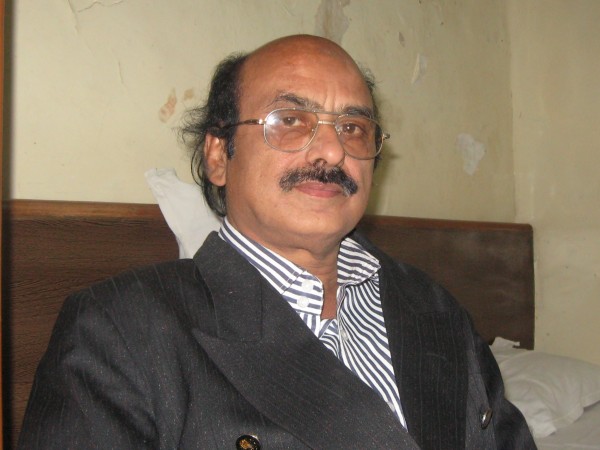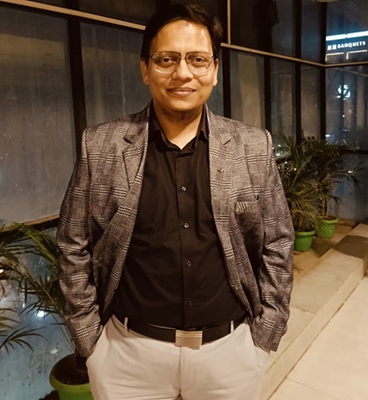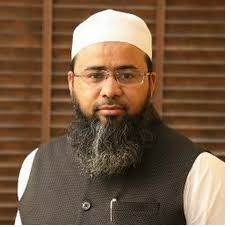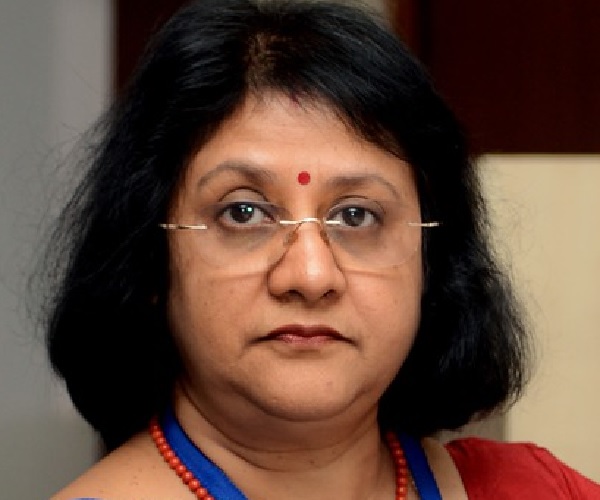
Dr Javed Jamil is Executive Chairman, International Centre for Applied Islamics, Chief Editor, “Islam, Muslims & the World” and Director PEACE.
By Sayyid Anwer Ibrahim
Dr. Javed Jamil, who is currently Head of Chair in Islamic Studies at Yenepoya University, Mangaluru is an internationally renowned thinker, political and economic analyst and the pioneer in the field of Applied Islamics. Author of more than a dozen books including “Muslim Vision of Secular India: destination and Roadmap”, “Muslims Most Civilised, Yet Not Enough”, “The Devil of Economic Fundamentalism” and “Islam and Family Planning”, he is also a popular speaker. He visited Bangalore recently to address three important sessions of Advocates, Doctors and Professionals in the Truth and Justice Conference organised by JIH, Karnataka at Quddusiya Eidgah between 19th and 21st January, 2018. His talks particularly on “Future of Muslims in India” and “Muslim Personal Law: Way Ahead” became the talking point of the conference. I conducted an interview of him later in his room. Here are the excerpts from that interview:
Q: You talked of Muslims’ failure in creating issues and indulging only in reactive politics. Please elaborate on that.
- Muslims and Muslim organisations have unfortunately almost always been involved in reactive politics. Muslims rise in protest only when others target their Personal Law or other rights or threaten their places of worship. While Muslims cannot be faulted for countering such moves, what they lack is their inability to raise issues concerning the humanity in general and the countrymen in particular. The biggest challenge to today’s world comes from the forces of economics that are busy monopolising wealth, power and resources through every possible way—moral or immoral. We have failed to unveil their designs. The biggest problems of today are the huge economic inequality created by the combination of the corporate and politics, commercialisation of human weaknesses and exploitation of women in the name of freedom. Alcohol, drugs and sex have become the biggest killers of humanity. But we have never run movements against alcohol, drugs, prostitution, promiscuity, abortions and pornography, all of which have become big causes of the devastation of life, family peace and social order. We have also not raised voice against the rise of all forms of crimes including murders and rapes. Abortions kill more than 50 million humans before their birth but none including Muslims rise against this colossal desecration of human life in the so-called civilised world.
- You said that Muslims have not raised the real issues related to women.
- In my personal capacity I have been unveiling the designs of the forces of economics for almost two decades. But Muslim organisations have done pretty little. They must campaign against market sponsored feminism, which is a huge threat not only to the social and family fabric but also to women themselves and their children. Why have we not run movements against prostitution, which is the biggest blot on the face of mankind? In India alone there are more than 10 million prostitutes who do not only face huge dangers to their health but are also deprived of normal family life. We fail to highlight the real factors behind the galloping rates of rapes and sexual assaults. When there will be sexual provocation all around, when hardly any punishment will be given to the perpetrators, rapes are bound to rise. But the market forces will first commercialise sex and nudity to the hilt, and when rapes do occur they will try to blame only the perpetrators without holding the system responsible.
- You also lambasted Muslim organisations to live up to the demands of Islamic law related to women. What are the major issues?
- See. Triple Talaq issue reached a stage where Supreme Court had to intervene and now the BJP Govt is trying to take advantage of using it as another ploy to lodge Muslims into jails. If Muslim scholars and organisations had explained to the people the one correct Qur’anic Method of divorce or could have benefitted from other fiqhs, this could have been avoided. Neither Muslim nor Hindu women are getting shares in inheritance. Muslim organisations have failed to get the Islamic laws of inheritance applied in practice. The proper method of Mehr is also not being followed. We have to work for empowerment of women within Islamic framework.
- In one of your talks, you urged Muslims to launch “Peace and Friendship Offensive” for the unity of the nation. Will this make the future of Muslims in India safe?
- As I said in my talk, despite all the concerns being talked about their future, I have absolutely no doubt that the future of Muslims is safe and secure in India. Time and again, all the sections of society feel insecure due to the rise of certain elements. But ultimately truth and justice triumph and sanity prevails. India is a country with many ideological and social minority groups with almost equal percentage in the population. These include religious minorities, Dalits, OBCs, Hindutvavadis and Secular upper caste Hindus. Fortunately, we have something common with each of these groups and this commonness needs to be used to build bridges. While Dalits, OBCs are natural allies because we are all part of underprivileged and marginalised sections of society, Secular Hindus are our natural partners in maintaining the secular fabric of the country. Contrary to the common belief, I believe that we have so many ideological similarities with the Hindutvavadis that in the long run they cannot afford to antagonise us. Unfortunately, the craze for economic and political power has taken over them and they are using religious identity rather than religious morality as their prime concern. This is contrary to what all religions including Hinduism teach. Sooner than later, the followers of the religions will recognise the threat posed to the moral and social foundations of mankind from the irreligious, ultraliberal ideologies governed by what I call “Economic Fundamentalism”. This will be the beginning of the grand revival of the truth and I have firm belief that India will play an important role in that revival.
- But the Hindutvavadis are spreading the mischievous propaganda that Islam is their biggest enemy.
- Maybe. But once they study Islam in detail without a predetermined bias, they will know that Islam is not an alien religion but the culmination of the process of religious guidance by none other than God Himself through His Ambassadors that came to all the parts of the world, Muhammad being the Final Messenger. It is this belief that does not allow Muslims to indulge in the kind of the campaign against other religions which is so common by the fringe elements of other religions against Islam. While lots of Islamophobic portals can be seen being run by Jew, Christian and Hindu elements, it is very hard to find Muslims indulging in campaigns against the founders and the books of other religions. Both Hindus and Muslims are religious people though their methods of worship can be different. Both believe in similar concepts of morality. Both shun intoxication of all kinds, sex outside marriage, gambling and violence. Family is sacrosanct for both of them. On the other hand the so-called modern ideologies are on the different frequencies. They are busy using these very vices for “Economic Growth”. Once this realization dominates, India will be different.
- What are your own plans in that direction?
- I am now heading Chair at Yenepoya University. In that capacity, I am trying to build bridges between different sections of society and spread the religious message of unity, moral and social values. In coming years, Insha Allah I will be coming with a series of books. “Economics First or Health First?” is in the print and another work, “Justice Imprisoned” is also planned this year. The first one talks abbot how the forces of economics are operating at the cost of health and the second one talks about the impact of the same forces on crimes and judicial system, which has totally failed to reduce crimes. We are also starting a PG Diploma in Applied Islamics, which will be a one year course beginning from July. I will keep up highlighting the role of the market forces in spreading vices. We have to work for a cleaner, healthier and peaceful world.
- Your work, “Muslim Vision of Secular India: Destination & Roadmap” seems to have inspired a new approach towards the issues related to the empowerment of Muslims. Some thoughts on that?
- Alhamdulillah this work received huge popularity. Following that work, I have been invited to more than 30 cities of the country and everywhere it was the major demand. This was the first work of its kind in Independent India, which encompassed all the aspects of Muslim life and issues and presented a comprehensive roadmap. Now, many important organisations have come up with their own programmes of Muslim Vision. I have talked of comprehensive, multi-dimensional and sustained efforts to improve the conditions of Muslims. I have discussed 4 major empowerments: Ideological Empowerment, Social Empowerment (including education, health, empowerment of women and fight against social vices), Economic Empowerment and Political Empowerment. Work on all these needs to done simultaneously with distribution of work and mutual collaboration.





0 Comments